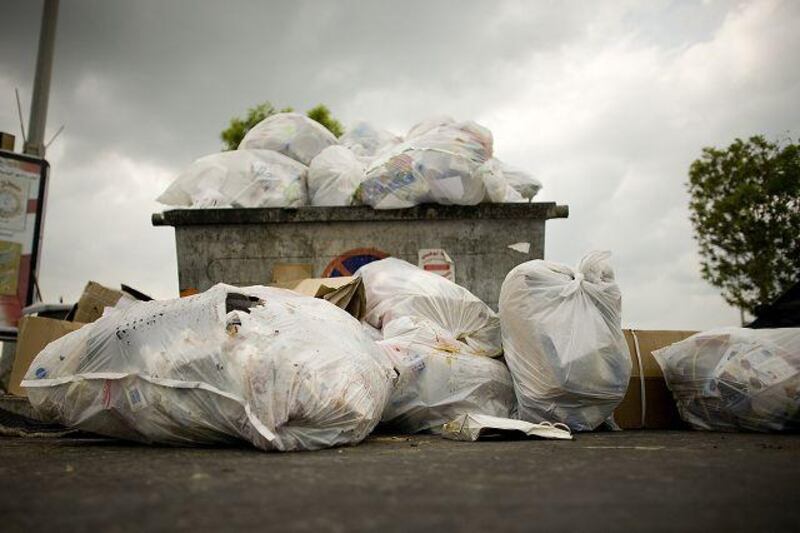ABU DHABI // Overflowing bins could soon be a thing of the past in Abu Dhabi. A new rubbish collection system involving underground containers is due to start at selected locations in two months' time before being rolled out across the emirate.
The project, part of a wider plan to improve waste management and recycling, is a response in part to the problem of rats and other vermin attracted by open, often-overflowing bins. It will be implemented by the Centre of Waste Management initially at 31 places across Khalidiya and the Tourist Club area, and around the Grand Mosque, as well as in Al Ain. "This is part of our comprehensive effort to move towards an integrated waste management and to create a better environment for residents, visitors and the business community in the emirate," said Majid al Mansouri, head of the emirate's Supreme Waste Management Committee.
As soon as the system is ready, the centre will launch a campaign to let people know how the new bins work. Each household in the selected areas will receive an information pack. The system consists of several large containers encased within a metal frame and then sunk inside a concrete sleeve in the ground. The only visible part is a lockable receiver unit. Once waste is deposited, it is compacted. Sensors alert a control centre when the container is full. This, coupled with the fact that the new units hold more than the present bins, should mean fewer trips for the collection lorries.
The system is already in use in cities in Spain, Portugal, France and the UK. The waste management centre is also preparing to launch a recycling scheme in the emirate. Previous efforts to increase the amount of recycling have been hindered by a lack of equipment to sort different types of waste. But that is to change within the first half of this year, according to Dr Bader al Harahsheh, general manager of the Abu Dhabi waste management centre.
The plan is to start with a door-to-door collection programme in a residential area on the outskirts of Abu Dhabi. "Each villa will have two bins," Dr al Harahsheh said, explaining that recyclables and organic waste would be separated. "This is one of our immediate projects." In the absence of a recycling programme, all of Abu Dhabi's waste has been going into landfills, using up valuable resources that could be reused and taking up ever larger stretches of the desert.
There are nine official landfills in the emirate, with the biggest, Al Dhafra, receiving at least 20,000 tonnes of waste per day. The facility spreads over some 16 square kilometres and has been in use for 25 years. On average, each UAE resident produces about 1.75kg of household waste every day. That is higher than the average for most European countries. In Germany, for example, the figure is 1.6kg.
However, through recycling schemes and projects that convert solid waste into energy, Germany manages to reduce the amount of waste going into landfills by 40 per cent. Most of the UAE's landfills were built at a time when there were no regulations ensuring that toxic substances from the waste should not leak into the surrounding soil and groundwater supplies. In addition, landfills - and not just those in the UAE - emit copious amounts of greenhouse gases. A tonne of biodegradable waste produces between 200 and 400 cubic metres of gas, mostly methane, which has a greenhouse effect 21 times worse than that of carbon dioxide.
vtodorova@thenational.ae





